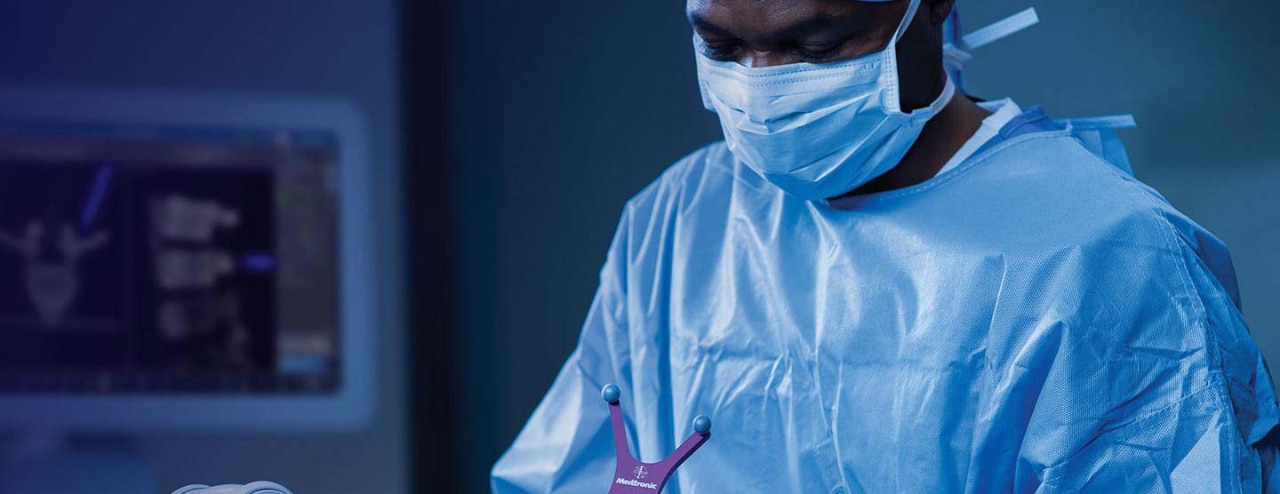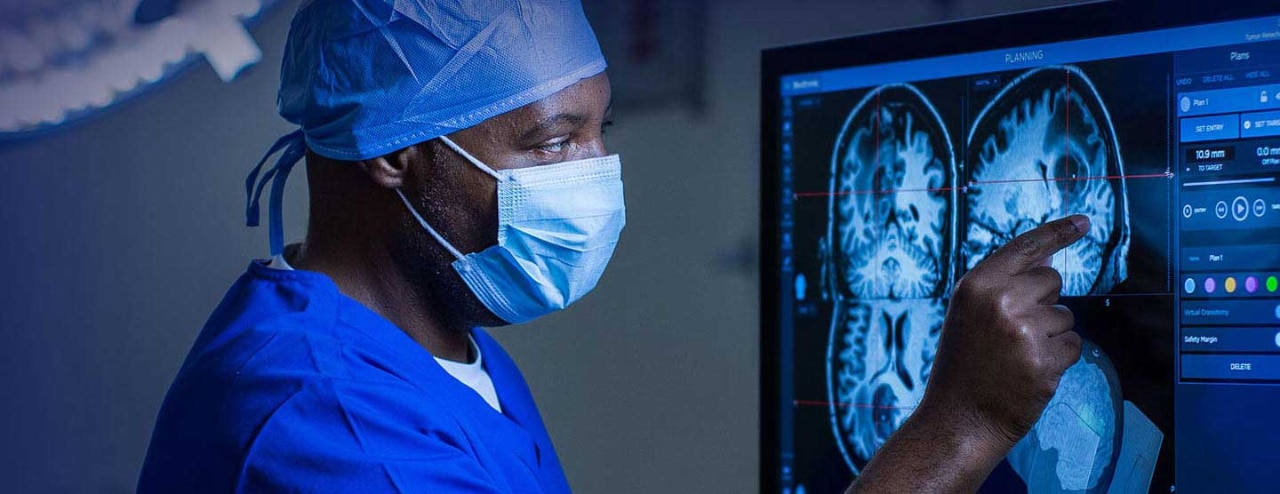
Our History
Leading healthcare technology innovation since 1949
For more than 70 years, we have led the way with purpose-driven healthcare technology. That history compels us to relentlessly pursue therapies that change lives.
1949: The garage gang
Earl Bakken, a graduate student in electrical engineering, and his brother-in-law Palmer Hermundslie, an enterprising engineer, started a repair business focused on medical electronics. They named it Medtronic. The pair were driven by passion and a deep purpose to use their scientific and entrepreneurial skills to help others. As the work increased, they added a handful of employees, who called themselves “the garage gang,” a reference to their spartan office in two boxcars used as a garage at the Hermundslie family’s Minneapolis home.
1957: The first battery-operated pacemaker
The power went out in Minneapolis on Halloween in 1957, endangering the lives of open-heart surgery patients who were often attached to a pacemaker. Existing pacemakers were bulky boxes wheeled around on carts and plugged into electrical outlets. Concerned for his patients, a University of Minnesota heart surgeon asked Bakken if he could create a battery-operated pacemaker. Within four weeks, Bakken did just that, and the revolutionary device began saving lives. Hermundslie, an accomplished pilot, flew all over the United States delivering pacemakers to customers. Soon, the “wearable” Medtronic pacemaker was being shipped around the world. One year later, Medtronic produced the first implantable pacemaker.
1974-1979: Corporate citizenship
Early on, we prioritised equal employment and instituted a minority-suppliers program, two initiatives that indicated our commitment to being good citizens of the world. In 1979, the Medtronic Foundation was established, reinforcing a commitment to corporate citizenship, the sixth tenet of our Mission. That same year, the Bakken Society was founded to recognise technical employees who make multiple, significant contributions to Medtronic, to the biomedical industry, and to customers and patients.
1977: Prosthetic heart valve
We introduced the Medtronic-Hall mechanical heart valve in 1977. The tilting-disc valve design was a significant development and was the choice of physicians globally for nearly a quarter of a century.
1987: Expansion into neurostimulation
Building on the science of using electrical stimulation to pace the heart, Medtronic collaborated with French doctors to pioneer the world’s first deep brain stimulation system to treat movement disorders.
1996: Implantable cardioverter defibrillators
A decade of increased research and development investment paid off when we introduced the first implantable cardioverter defibrillators, designed to treat tachycardia, a dangerously fast heartbeat.
2002: First remote monitoring system
Medtronic introduced the industry’s first remote monitoring system, designed to securely transfer data from patient devices to doctors via the internet.
2015: Covidien acquisition
Bringing together the extensive capabilities of Covidien and Medtronic strengthened our commitment to solve some of healthcare’s greatest challenges, enabling us to help treat more people, in more places, than ever before.

2016: Breakthroughs in diabetes care
Our hybrid closed-loop system becomes the first FDA-approved device to automatically provide background insulin dosing 24-hours per day for people living with type 1 diabetes.
2020-2021: Guided by our Mission during a pandemic
As COVID-19 swept the globe, we looked to our Mission for guidance. In the first few months, we mobilised to help the heroes on the front lines by increasing ventilator production and publicly sharing design specifications for our portable, compact ventilator. We also created virtual care and telehealth tools for healthcare providers and accelerated the development of remote device management technology, allowing healthcare workers to monitor patients from a distance.
2021: New capabilities in AI, robotic-assisted surgery
In June, Medtronic announced the first patient procedure with a new soft-tissue robotic-assisted surgery system. The groundbreaking technology is among the ways we are expanding our high-tech capabilities in the world of data science, machine learning, and artificial intelligence.
Explore topics:
-
 Robotic-assisted surgery
Robotic-assisted surgery -
 Healthcare technology
Healthcare technologyThe healing power of electricity
-
 Healthcare technology
Healthcare technologyOur bold ambition
-
 Artificial intelligence
Artificial intelligencePowering the future of personalised healthcare
-
 Healthcare technology
Healthcare technologyConnected healthcare, anywhere
-
 Healthcare technology
Healthcare technologyImproving people’s lives with groundbreaking tech
